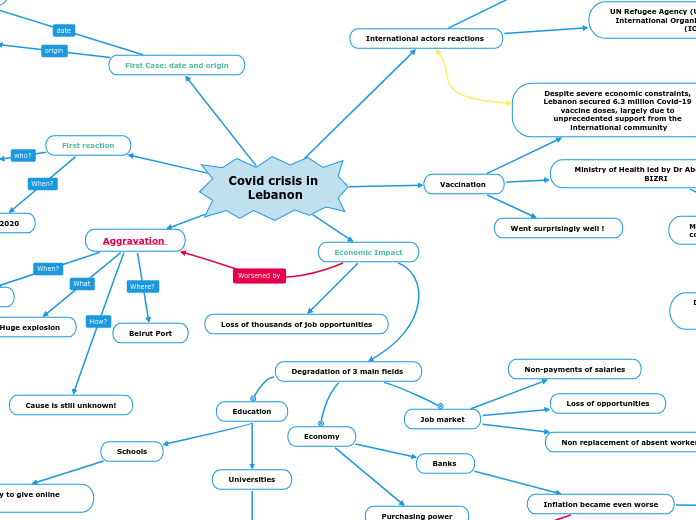作者:Lara SFEIR 1 年以前
202
Covid crisis in Lebanon

作者:Lara SFEIR 1 年以前
202

更多类似内容
Despite this progress, lacks the resources and the staff to fully operationalise and implement the national plan.
Private and nongovernmental actors fill the gaps.
International actors worked on their vaccination
Discriminations in access to health, poverty, threats...
International Federation of Red Cross and Red Crescent Societies
Non replacement of absent workers
Loss of opportunities
Non-payments of salaries
Purchasing power
People ran to make provisions
Gas prices became unstable
Gas stations closed because price changes every hour (to make profits)
Queues to get gas
Essentials
Electricity
Gas provisions were also made
Gas prices rose
Public electricity became almost unavailable
Private generators took the opportunity and made extraordinary benefits
Electricity bills became very high
Some people kept their expensive subscription
Extremely high prices : 1 subscription = 1 month salary
Some people stopped their subscriptions
Rotten food, no heating in the winter and no coolness in the summer, hygiene issues, badly stored drugs...
Prices became delusional
Food quality dropped
New health problems rose
Poverty rose
Medical
In Lebanon it is easy to get a drug without prescription
Penury of Covid treating drugs
Banks
Inflation became even worse
Salaries became obsolete
NGOs gave food packages but limited
Universities
Minister of health gave shutting down instruction
Universities said it was "unnecessary panic" and stayed open
Were forced to shut down in
Internet connection problems => courses were disrupted
Schools
Were not technically ready to give online classes
Bad internet connection in Lebanon
Classes were very inconsistent
Official exams did not take place
Extended! Many times